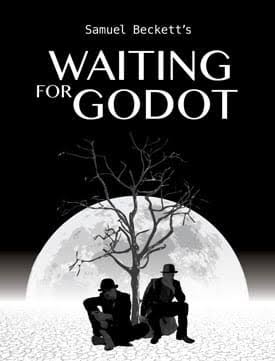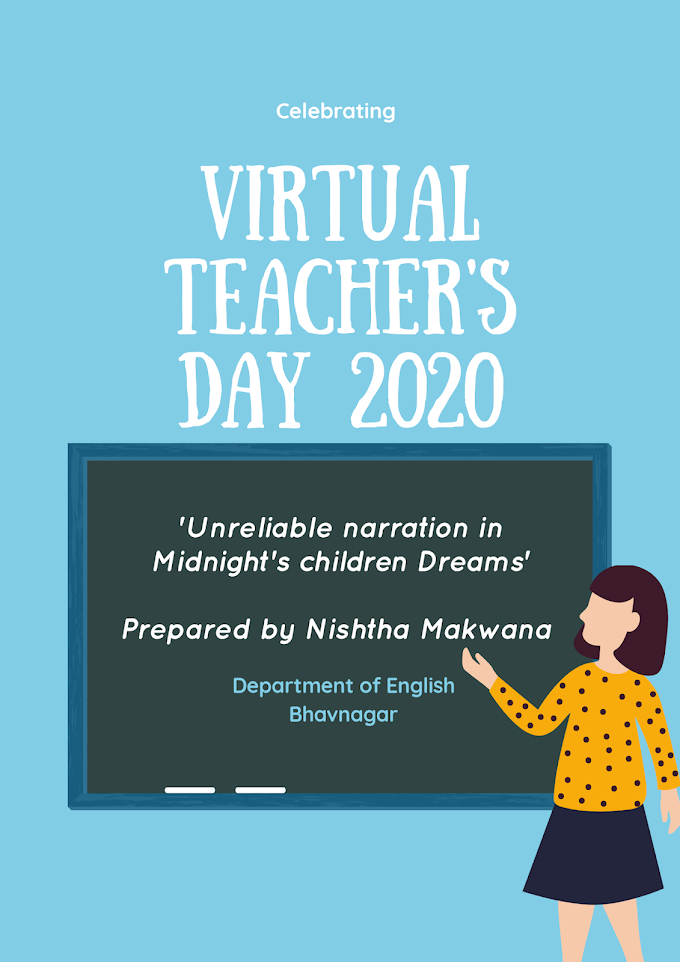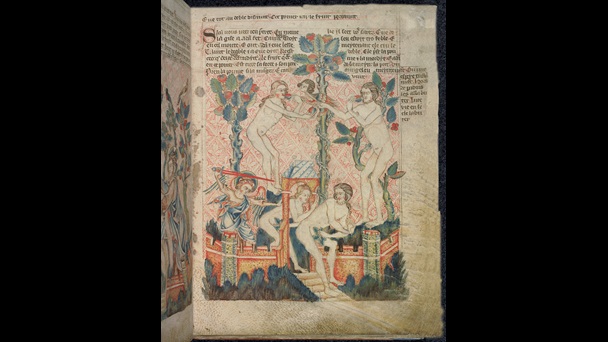Hello friends:) welcome to my blog. Here I'm Sharing my views regarding lectures given by Poet Vinod Joshi. I have attended six days lectures arranged by Pro. Dilip Barad at department of English. So the lectures are given on Indian poetics. And it was very helpful to understand Indian criticism.
So I'm starting from the very beginning, the first day when we welcomed him by giving flowers.
Day 1
Day one is the starting day for us where we came to know about what is language? and from where it exists. Language is created by us, and this is not natural. It is not given by God. But feelings ~ our feelings is very natural. It is came with us from our birth. So feeling is natural. But when we express our feelings through the language, many times we hide our feelings. As Vinod sir told…
ભાષા જો ના હોત તો આપણે બધા સાચાં હોત
Vinod sir gave many sanskrit and gujarati examples to make it easy to understand. Then he gave a brief theory of Western criticism and differentiate between Indian and western criticism. He says according to his reading…
• Western criticism just focus on Results
• Indian poetics focus on both Process and Result
• Western criticism just focus on Results
• Indian poetics focus on both Process and Result
So, one can say that Indian poetics has a vast theory of literary criticism than western criticism. Then we came to know about different schools ( સંપ્રદાય ) of Indian poetics…
1 ~ રસ સંપ્રદાય school of Aesthetic experience - ભરત મુનિ
2 ~ ધ્વનિ સંપ્રદાય school of verbal symbolism - આનંદ વર્ધન
3 ~ વક્રોક્તિ સંપ્રદાય School of Principle of Deviatio - કુંતક
4 ~ રીતિ સંપ્રદાય school of tyle & composition - વામન
5 ~ અલંકાર સંપ્રદાય Principle of figurative - ભામહ
6 ~ ઔચિત્ય સંપ્રદાય School of Propriety - ક્ષેમેન્દ્ર
According to Indian critics the world of experience is superior.
અનુભવો નુ જગત સર્વોપરી છે
A brief introduction about it and then Vinod sir started with the school of aesthetic experience.
Day : 2
● રસ સંપ્રદાય ●
The school of esthetic experience
Bharat Muni is considered as the first Indian critic. In his Natya Shastra in chapter 6 he talks about Rasa. And he gave a Ras~sutra…
विभावानुभावव्यभिचारी संयोगात रसनिष्पति।
There are four elements to create Rasa….
विभाव : જેના આધારે રસ નિષ્પન્ન થાય, વ્યક્તિઓ ના વચ્ચે નો અનુરાગ
अनुभाव : પ્રતિક્રિયા (reaction)
संचारिभाव : વહેતા ભાવો
संयोग : ઉપર ના ત્રણેય ભાવો નુ જ્યારે સંગમ થાય, સંયોજન ત્યારે રસ નિષ્પતિ થાય છે
સંયોગ ને કારણે આનંદ આવે છે
To justify this Vinod sir gave the example of Kaalidas' अभिज्ञान शाकुंलम. So we could understand it properly. There are nine rasas which we can find while watching or reading a play. But we have some feelings which is permanent and we can not control it. That's why that is called સ્થાયી ભાવો ~ Permanent feelings and and those which we can control those are અસ્થાયી ભાવો…
રતી > શૃંગાર
શોક > કરુણ
ઉત્સાહ > વીર
ક્રોધ > રૌદ્ર
હાસ > હાસ્ય
ભય > ભયનકા
જુગુપ્સા > બિભત્સ
વિસ્મય > અદભુત
શમ/ નિર્વેદ > શાન્ત
સ્થાયી ભાવો અસ્થાયી ભાવો તરફ લઇ જાય છે
And there is a shloka given by Bharat muni….
शृंगारकरुण वीर रौद्र हास्य भयानका।
बीभत्सादभूत शान्तश्व नव नाट्य रसा: स्मृता।।
Rasa is superior and there is no comparison of its. But there were many other critics who criticized Bharat Muni's theory of Rasas. So let's have a look…
1. Bhatta lollat
2. Shree Shankuk
3. Bhatt Nayak
4. Abhinavgupt
So, these four Indian critics have criticized the theory of Rasa.
1. Bhatta lollat : ઉત્પતિવાદ
According to him there is nothing like Rasa. We have to provoke this. It means actress and actor have to provoke this feelings to convey the audience. So he criticized the theory and gave a meaningful reasons.
2. Shree Shankuk : અનુનિતિવાદ
According to him there is no rasa, and we don't have to provoke this. But we have to imagine it, assume it.
3. Bhatt Nayak : ભુક્તિવાદ
This theory we can find similar with Aristotle's theory of Catharsis.
નાટક ભજવનાર અને પ્રેક્ષક બંન્ને ભાવ ના અનુભવ મા સમાન કક્ષઍ પહોંચે ત્યારે રસ નિષ્પન્ન થાય છે…
4. Abhinavgupt : અભિવ્યક્તવાદ
ઍમના મત અનુસાર દરેક રસ અનુભવ કરાવે છે. એમને રસ નો એક સિધ્ધાંત પણ આપ્યો છે..
'प्रकाशज्ञानआनन्दविश्राम'
So, this is the theory of Rasas…
Day 3 …
ધ્વનિ સંપ્રદાય
Verbal symbolism
Language is just a tool to convey our feelings and messages. But there is power of words શબ્દ શક્તિ. There is three types of શબ્દ શક્તિઓ..
• અભિધા - જેમા જે કહ્યુ છે એજ ધ્યાન મા લેવાનુ
• લક્ષણા - જેમા જે કહ્યુ ઍ નહિ પણ એનો નજીક નો અર્થ લેવાનો
• વ્યન્જના - જેમા કહ્યુ કંઈક હોય અને એનો અર્થ અલગ જ લેવાનો
• અભિધા - જેમા જે કહ્યુ છે એજ ધ્યાન મા લેવાનુ
• લક્ષણા - જેમા જે કહ્યુ ઍ નહિ પણ એનો નજીક નો અર્થ લેવાનો
• વ્યન્જના - જેમા કહ્યુ કંઈક હોય અને એનો અર્થ અલગ જ લેવાનો
Then he have three types of verbal symbolism…
● વસ્તુ ધ્વનિ - જેમા વસ્તુ એટલે કે વિચાર કેન્દ્ર મા હોય. આ પ્રકાર ની ધ્વનિ લૌકિક ધ્વનિ મા આવે જેનુ આપણે વર્ણન કરી શકીયે છિયે.
● અલંકાર ધ્વનિ - આ પ્રકાર ની ધ્વનિ મા મુખ્ય કેન્દ્ર મા અલંકાર હોય છે. આ પણ લૌકિક ધ્વનિ છે.
● રસ ધ્વનિ - આ ધ્વનિ મા રસ થી મળતા ભાવ ને કેન્દ્ર મા રાખવામા આવે છે. આ અલૌકિક પ્રકાર નિ ધ્વનિ છે જેને આપણે વર્ણવી ના શકીયે.
Day 4…
● વક્રોક્તિ સંપ્રદાય ●
This school is created by Kuntak. This theory is focused on words. And one can say that this is a modern theory. This is focus on
How writer treats the language
And its gave beauty to language.
ભાષા ને સૌંદર્ય આપે છે
Kuntak also has given six types of Vakrokti
વર્ણવિન્યાસ વક્રતા
પદપુરાર્ધ વક્રત
પદ પુર્વાધ વક્રતા
વાક્ય વક્રતા
પ્રબંધ વક્રતા
વર્ણવિન્યાસ વક્રતા
પદપુરાર્ધ વક્રત
પદ પુર્વાધ વક્રતા
વાક્ય વક્રતા
પ્રબંધ વક્રતા
This types of vakrata give beauty to language and work of arts.
Day 5 and 6….
● અલંકાર સંપ્રદાય ●
Bhamah has created this school of figurative language. This is not natural but we applied to language to give the beauty to language. This is an objective correlative.
વાણી ઍ ભૂષણ છે
પણ યોગ્ય જગ્યા ઍ યોગ્ય અલંકાર વપરાય તો જ તેનો અર્થ જળવાઈ રહે છે.
● રીતિ સંપ્રદાય ●
The school of style and composition is created by Vaman. As it is said that..
Style is a man
Vaman gives most importance to Riti. According to him Riti is very important in any work of art. . In Indian politics there is three types of Shaily
પાન્ચાલિ શૈલી
ગૌડી શૈલી
લાટી શૈલી
પાન્ચાલિ શૈલી
ગૌડી શૈલી
લાટી શૈલી
સ્થળ કેન્દ્ર મા હોય અને ભાષાની પ્રકૃતિ અને સર્જકતાનો વેગ ધ્યાન મા લેવાના હોય.
● ઔચિત્ય સંપ્રદાય ●
This type of school has been created by kshemendra. It is best word in best order.







1 Comments
સરસ
ReplyDelete